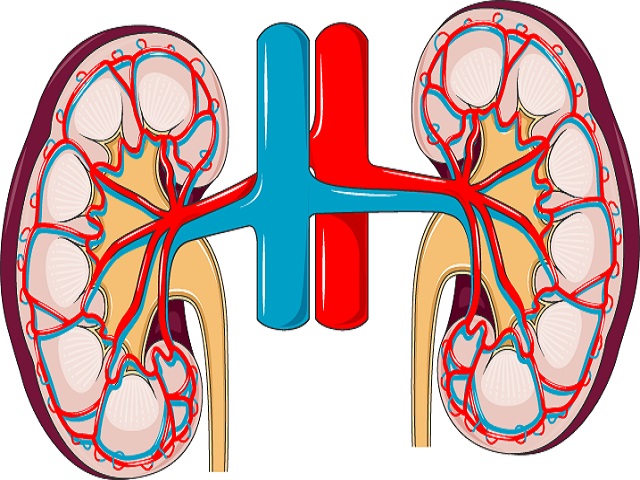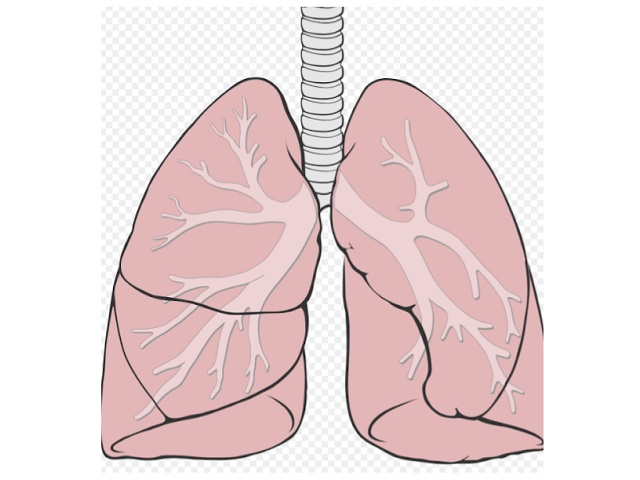6 Signs You May Have Nephrotic Syndrome -- Symptoms, Causes, Effects, Treatment and Prevention
Image by Laboratoires Servier, CC BY-SA 3.0, via Wikimedia Commons
Nephrotic syndrome is a kidney disorder characterized by abnormal levels of protein in the urine and specific symptoms. It occurs due to damage to the glomeruli, the kidney's filtering units, leading to protein leakage. Let's explore nephrotic syndrome, along with its symptoms, diagnosis, causes, effects, treatment, and prevention:
Symptoms of Nephrotic Syndrome:
Nephrotic syndrome is associated with the following symptoms:
- Proteinuria: Excessive protein in the urine, leading to foamy or frothy urine.
- Edema: Swelling in the face, legs, ankles, and feet due to fluid retention.
- Hypoalbuminemia: Low levels of albumin in the blood, causing fluid accumulation in tissues.
- Hyperlipidemia: Elevated levels of fats (lipids) such as cholesterol and triglycerides.
- Weight gain: Unexplained weight gain due to edema and fluid retention.
- Fatigue and weakness: Generalized fatigue and weakness caused by protein loss and nutritional deficiencies.
Diagnosis of Nephrotic Syndrome:
Diagnosing nephrotic syndrome involves the following assessments:
- Urine tests: Analyzing a 24-hour urine collection or a spot urine sample to detect proteinuria and other abnormalities.
- Blood tests: Measuring albumin, cholesterol, and other parameters to evaluate kidney function and overall health.
- Kidney biopsy: Extracting a small sample of kidney tissue to examine it under a microscope, providing insights into the underlying cause.
Causes of Nephrotic Syndrome:
Nephrotic syndrome can be caused by various factors, including:
- Minimal change disease: The most common cause in children, characterized by normal-looking kidneys under a microscope.
- Focal segmental glomerulosclerosis (FSGS): Scarring of specific glomeruli segments, leading to proteinuria.
- Membranous nephropathy: Thickening of the glomerular basement membrane, causing protein leakage.
- Diabetic nephropathy: Kidney damage associated with diabetes, leading to nephrotic syndrome.
- Systemic lupus erythematosus (SLE): An autoimmune disease that can affect the kidneys.
- Amyloidosis: Deposits of abnormal protein called amyloid in the kidneys can lead to nephrotic syndrome.
Effects of Nephrotic Syndrome:
Nephrotic syndrome can have several effects on the body, including:
- Increased risk of infections: Loss of essential proteins weakens the immune system, making individuals more susceptible to infections.
- Blood clots: Nephrotic syndrome increases the risk of blood clots due to changes in blood clotting properties.
- Malnutrition: Protein loss through urine can result in nutritional deficiencies and impaired growth in children.
- Complications of edema: Edema can cause discomfort, difficulty breathing, and increase the risk of skin infections and ulcers.
Treatment of Nephrotic Syndrome:
Treatment for nephrotic syndrome aims to reduce symptoms, prevent complications, and manage the underlying cause. It may involve:
- Medications: Corticosteroids, such as prednisone, to reduce inflammation and proteinuria. Other immunosuppressive medications may be used based on the underlying cause.
- Diuretics: Medications that promote urine output to reduce fluid retention and edema.
- Blood pressure management: Medications to control high blood pressure and protect the kidneys.
- Cholesterol-lowering medications: If hyperlipidemia is present, medications may be prescribed to manage cholesterol and triglyceride levels.
- Immune system modulators: In certain cases, medications that regulate the immune system may be used.
Prevention of Nephrotic Syndrome:
Preventing nephrotic syndrome involves managing and addressing underlying causes. Some preventive measures include:
- Maintaining good control of underlying conditions, such as diabetes or autoimmune diseases.
- Following a healthy lifestyle, including a balanced diet, regular exercise, and weight management.
- Avoiding exposure to potential nephrotoxic substances, such as certain medications or environmental toxins.
Please note that the information provided is for general knowledge purposes. It is essential to consult with healthcare professionals for an accurate diagnosis, personalized treatment plan, and advice specific to individual circumstances.
References:
National Kidney Foundation. (2021). Nephrotic Syndrome. Retrieved from https://www.kidney.org/atoz/content/nephrotic
Mayo Clinic. (2021). Nephrotic Syndrome. Retrieved from https://www.mayoclinic.org/diseases-conditions/nephrotic-syndrome/symptoms-causes/syc-20375608













